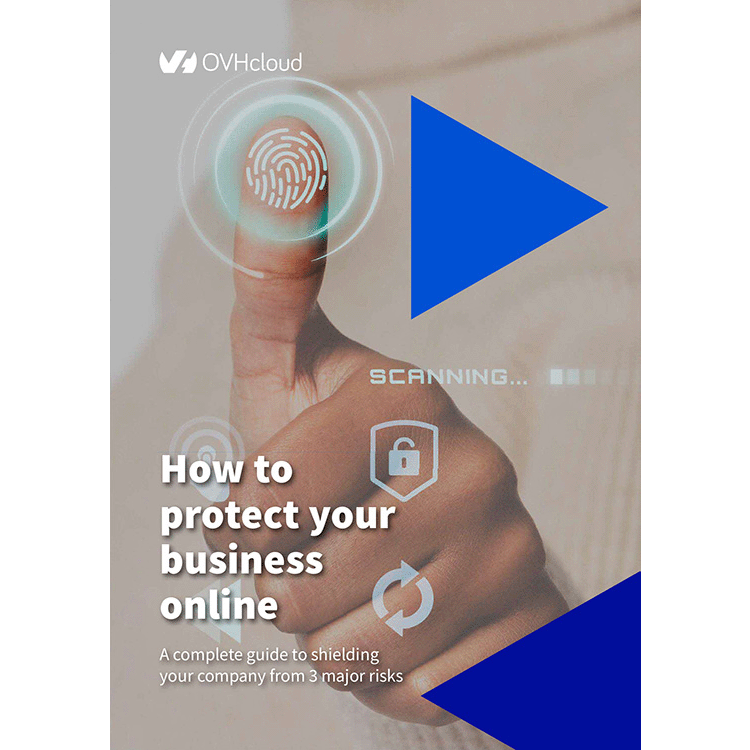Online Brand Management & Reputation Building
In the past, a customer’s first impression of a company was in person. Businesses could gain a competitive advantage through physical location — and by being the only organisation operating in an area.
Now, consumers usually interact with an organisation online first (and sometimes never in person). As a result, companies compete not just with local businesses but with other sellers across the globe. Because of this shift, building and maintaining a strong brand and reputation online is crucial to a company’s success strategy.

The importance of online brand management and reputation in the digital landscape
As the digital landscape grows, companies have more opportunities than ever to connect with their existing client base and extend their reach to interact with new clients. In fact, 88% of medium-sized enterprises and 75% of small enterprises in the European Union operate websites. In addition to websites, businesses are building rapport with potential clients through social media, email marketing, and search engine visibility.
With companies investing more in digital marketing and customers spending more time online, online brand management and reputation building are more important than ever. Your brand includes the products, services, name, and design that distinguish your company from others. To be successful, your website, social media, and other online marketing efforts should paint a cohesive picture of your company’s brand, values, mission, and offerings.
Alongside building your brand, you’ll also need to focus on your company’s reputation. Reputation goes beyond the calibre of the products and services you offer to encompass non-tangibles, like the quality of your customer service and ability to engage with customers. And while you can work on these items offline, you should take advantage of the opportunity to build positive associations online.
Alongside building your brand, you’ll also need to focus on your company’s reputation. Reputation goes beyond the calibre of the products and services you offer to encompass non-tangibles, like the quality of your customer service and ability to engage with customers. And while you can work on these items offline, you should take advantage of the opportunity to build positive associations online.
Tips for building a strong online brand
There’s no magic formula for building a brand online. You can, however, avoid common pitfalls in online brand management. We'll review some suggested practices around building, monitoring, and maintaining your company's presence online.
Do your (competitor) research
Research your target audience and competitors. You'll want to spend time looking at competitors' websites, social media, and online ad strategies to identify what they do really well and what they don't. You can also peruse your favourite websites, regardless of industry or purpose, for ideas on building an attractive, easy-to-navigate website.
Solidify your branding
If you haven’t already, now is the time to confirm your brand’s mission statement, name, logo, and colour scheme. Your choices should be unique to avoid confusion by being too similar to another brand's, but also relevant and concise. Here are a few ideas to consider:
Carefully choose your domain name.
Your domain name should include your brand name and a top-level domain (TLD) — also known as a domain extension — reflecting your organisation's industry (e.g., .edu for a school). Make sure that your chosen domain name is short and memorable. Avoid adding hyphens and numbers to your domain — unless it accurately reflects your brand’s name.
Make sure your brand is consistent across your website and social channels.
While you might promote your brand with a different tone over social media than your website, all your channels should still feel cohesive.
Follow all applicable accessibility guidelines.
Consider adding colour contrast in text and graphics for those with eyesight impairment.
Add video captions to accommodate viewers who cannot hear.
Optimise your website for mobile viewing.
Confirm that your website’s text, graphics, and links function properly, whether viewed from a mobile device, tablet, or desktop
Actively and consistently create quality content
Whether it’s eBooks, videos, blog articles, case studies, white papers, or social media posts, the success of your brand identity online depends on your company’s ability to post great content consistently.
What makes content great? Great content should be:
- Readable: Copy should be optimised for the web, grammatically correct, and easily understood by your target audience.
- Engaging: Your copy should invite online audiences and communities to engage with your company (e.g., a giveaway or trivia social media post).
- Valuable: Share copy that teaches your target audience about a concept or topic and helps establish your organisation as a thought leader.
- Findable: Optimise copy for search engines. This includes carefully selecting keywords and metadata.
Consistently producing quality content will help your site rank higher in search engines like Google, expand brand awareness, and generate better-qualified leads.
Create an offline presence
It may seem counterintuitive, but the more your company participates in offline activities — attending events, running workshops, and networking — the better your credibility and presence will be online. Enriching your website and social media with videos, photos, and recaps of real-life events your organisation has hosted and attended will help your company appear more stable. It can also be instrumental in building better relationships with your client base.
How OVHcloud supports your brand and reputation online
OVHcloud offers strategic solutions to level up your organisation’s online brand management:
- Domain identity: OVHcloud offers over 900 domain extensions, the opportunity to purchase existing domains, and automatic features that block fraudulent transfer requests and DNS server attacks.
- Web hosting: With 24/7 managed hosting services, OVHcloud continuously monitors its servers to help catch and correct technical issues early, minimising downtime and maximising customer satisfaction. We also include automated backup for your website files and databases to help you recover quickly and avoid business interruption as part of your larger backup strategy.
- Reliable email services: OVHcloud email hosting services provide high availability to prevent downtime from negatively impacting your customers’ service experience or employees’ ability to communicate and collaborate. In addition to linking your email with your domain name, we offer safeguards against viruses and spam.
In addition to the services above, we provide safeguards in each offering, such as protection against distributed denial-of-service (DDoS) attacks. Our dedicated domain, web hosting, and email services can start your digital transformation, support your transition, or help you innovate on an established brand.
Monitoring your online reputation
Securing a great domain for your website, producing quality content, and crafting engaging social media posts will build your brand — but you can't ignore your online reputation. Your reputation is critical to earning the trust of potential customers and instilling loyalty in your current customer base.
Reputation maintenance includes monitoring online mentions and reviews, responding well to negative feedback, and managing online crises.
Here are a few tips on how to monitor your company’s online reputation:
Monitor online mentions and reviews.
- Track customer reviews on your site and third-party websites like social media and customer review platforms.
- Analyse the tone and coverage of your brand’s media coverage (online news and social media).
- Use positive customer reviews and mentions for social media posts, ad copy, and compelling customer case studies.
Respond promptly and courteously to negative reviews.
- Leaving reviews unacknowledged sets a poor example of your organisation’s customer service.
- Remain courteous and professional, and refrain from going back and forth with a disgruntled customer.
- Apologise if at fault and offer potential solutions to the customer, but refrain from taking responsibility when your company isn’t at fault.
Manage online crises promptly.
- The definition of an online crisis differs across industries but can include data breaches, ransomware attacks, and even negative news or rumours about your company or its high-profile employees.
- Create reputation management alerts for your executive staff. It's best to respond promptly to negative rumours or news leaks that can impact your organisation.
- Develop a crisis communication plan. This can and should include templates for press releases and social media posts to help create a unified response across your company’s online channels.
